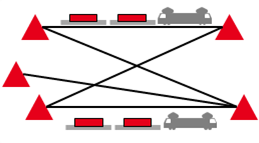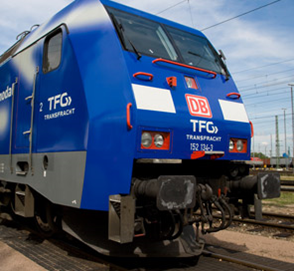
The constantly increasing transport volume in maritime container traffic is resulting in expanding capacity shortages in hinterland transport from/to seaports. Due to its high transport efficiency and environmental friendliness intermodal transport by rail is an attractive alternative to road freight transport. In order to further increase transport by rail, intermodal operators must continuously improve their transport services.
This service is substantially defined by the intermodal operator's schedule, which includes the network-wide train movements for the respective period (one year in Germany). In addition to the capacity on offer, this also determines the largest part of an operator's production costs. Consequently, this circumstance also sets lower price limits for offered transport services. Moreover, the schedule for one period must be entirely coordinated with the infrastructure operator before the start of the actual schedule period. Consequently, there are only limited possibilities for short-term adjustment during the year (e.g. cancellation of individual train circulations). In addition, the operator does not know the exact transport demand on individual routes in advance. In this situation, considering different stochastic demand patterns in the schedule design can lead to a significant improvement in the competitiveness of the intermodal operator’s offers.

However, considering stochastic demand significantly increases the complexity of designing schedules. Thus, research has so far concentrated on the creation of schedules by solving corresponding optimization problems under the assumption of predetermined demand (so-called Service Network Design).
In the PINTO project, these optimization problems are extended by including different demand scenarios (so-called Stochastic Service Network Design). The developed model computes minimum cost train circulation which provides sufficient transport capacities for the different demand scenarios. In addition, suitable solution methods are developed which also solve large model instances in acceptable computing time. This enables intermodal operators to create a model-based schedule for their entire network in order to improve both internal planning and the offer of train services.
Key Data:
Duration: November 2018 to October 2019
Partner: Deutsche Bahn AG, TFG TFG Transfracht Internationale Gesellschaft für kombinierten Güterverkehr mbH
Project Management: Jan Philipp Müller


